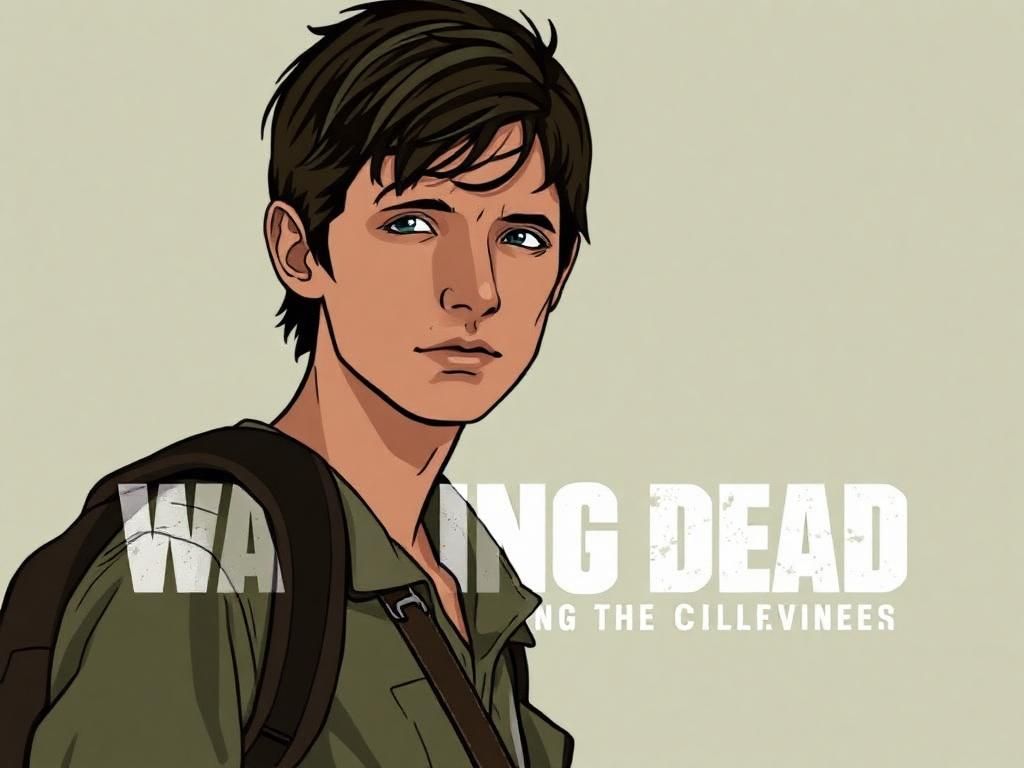Carl Grimes emerges as one of the most pivotal and poignant characters in The Walking Dead (TWD). His journey from a young, innocent boy to a resilient survivor reflects the harsh realities of a zombie apocalypse and the profound themes of loss, growth, and morality throughout the series. As the son of the main protagonist, Rick Grimes, Carl’s character encapsulates the struggle for survival within a world overrun by the undead, earning him a significant place in the hearts of fans and within the overall narrative. This article delves into Carl Grimes’ character arc, critical themes associated with him, and his lasting legacy within TWD.
Background Information
Character Origin
Carl Grimes is introduced as the son of Rick and Lori Grimes. From his very first appearance in Season 1, he embodies the traits of youth and innocence, yet shows a remarkable adaptability to his grim surroundings. This juxtaposition of childhood purity and the unrelenting cruelty of the world around him makes Carl a fascinating character. His innocence is a stark reminder of what the characters have lost in the apocalypse, making his growth throughout the series all the more poignant.
Development Through the Seasons
As the seasons progress, Carl transitions from a boy into a young adult, showcasing significant character evolution. Major life events truly shape him, starting with the devastating loss of his mother in Season 2. This moment marks a turning point, forcing him to grapple with the realities of survival. The influence of his father, Rick Grimes, is paramount, as Rick’s actions and decisions significantly impact Carl’s moral compass and decision-making processes. Furthermore, Carl’s relationships with other survivors, including friendships and rivalries, contribute to his development and understanding of human nature amidst chaos.
Key Themes Associated with Carl Grimes
Coming of Age in a Zombie Apocalypse
Carl’s journey serves as a classic story of coming of age, highlighting the struggle between maintaining innocence and confronting harsh moral dilemmas. As he faces moments that signify his growth, such as making life-and-death decisions, Carl repeatedly grapples with his fading childhood. His struggles resonate with the audience, illustrating how loss of innocence is inevitable in a world filled with danger.
The Impact of Loss and Trauma
Loss becomes a recurring theme in Carl’s story, particularly the death of friends and family, which deeply affects him. The mental and emotional repercussions of survival manifest in his character, shaping him into a hardened individual who understands the fragility of life in the apocalypse. This trauma drives Carl’s actions and reinforces the complexity of his character.
Legacy and Leadership
As he matures, Carl gradually adopts leadership qualities, becoming a moral compass for those around him. His vision for a better world influences others, especially Judith, his younger sister, and his father, Rick. Carl’s insistence on preserving humanity sets him apart in a world that often prioritizes survival over ethics. His growth into a leader demonstrates not only his adaptability but also his dedication to forging a future amidst despair.
Significant Character Arcs
Carl’s Relationship with Rick
The dynamic between Carl and Rick Grimes is central to the narrative. Their bond is tested through many trials, but pivotal episodes highlight their unwavering love and understanding. Rick’s influence on Carl’s decision-making is apparent, guiding him in his quest to balance survival with moral integrity. Key episodes feature their relationship as both a source of strength and conflict, showcasing how the apocalypse strains familial bonds.

Friendship and Rivalry with Other Survivors
Carl’s interactions with other survivors, including friendships with figures such as Beth and Michonne, and conflicts with adversaries like Negan, shape his experiences and growth. These relationships present a microcosm of humanity in the ruins of society, illustrating how Carl navigates his place within group dynamics. His evolving role in these relationships signifies his development from a dependent child to a confident, decisive young adult.
Key Episodes Featuring Carl Grimes
Memorable Moments
Several episodes stand out when discussing Carl Grimes’ character. In Season 4, a confrontation exemplifies Carl confronting the grim realities of survival, reinforcing his evolution. Season 6 offers critical choices that lead to misspent risks, showcasing Carl’s struggle with his moral compass. In Season 8, his pivotal choices lead to dramatic consequences, further entrenching his character in the narrative’s fabric.
Character Highlight Episodes
Episodes like “The Next World” and “No Way Out” provide in-depth looks into Carl’s character. These character-focused episodes emphasize internal growth, exploring Carl’s resolve and sense of duty amidst the chaos. The storytelling allows viewers to appreciate Carl’s journey and the complexity of his evolution throughout TWD.
The Death of Carl Grimes
Circumstances Leading to His Death
In Season 8, the Whisperer storyline culminates in tragic circumstances for Carl. The emotional weight of Carl’s bite and its impact ripples through the narrative. His impending death not only serves as a character-defining moment but also influences decisions made by others in the group, especially Rick.
Emotional Impact and Legacy
The emotional fallout from Carl’s death echoes throughout the series. Fans reacted strongly, with many expressing grief and frustration over the character’s fate. Carl’s final message underscores the importance of morality and hope, leaving a lasting legacy that shapes both the audience’s perception and the character arcs of survivors like Rick and Judith.
Carl Grimes’ Legacy in The Walking Dead Universe
The Aftermath of Carl’s Death
Following Carl’s demise, Rick’s character undergoes significant transformation. Grappling with the loss of his son leads Rick to reconsider his leadership approach and the moral choices he’s made. The group dynamics shift, as Carl’s absence is profoundly felt among the remaining survivors.
Fan Reactions and Character Impact
The death of Carl sparked extensive fan discussions and theories about the series’ direction. Online forums are rife with debates regarding Carl’s original storylines in the comics versus the show adaptation, illustrating his impact on the community of TWD fans. The emotional connection many viewers felt towards Carl speaks volumes about his character significance.
Future Implications
Speculation about Carl’s presence in potential spin-offs, such as The Walking Dead: World Beyond, persists. While Carl’s storyline concluded, his influence continues—particularly on characters like Judith Grimes, who carries on his legacy of hope and resilience amidst the chaos of their world.
Conclusion
Carl Grimes’ character arc reflects the broader themes of survival, loss, and growing up within the universe of The Walking Dead. His significance resonates beyond the episodes he graces, capturing the challenges faced by those who endure in a world torn apart. Carl remains a poignant reminder of the innocence lost and the endurance of hope, establishing a profound legacy in the hearts of fans across the globe.
| Season | Key Event | Character Development |
|---|---|---|
| 1 | Introduction to Carl | Innocent child trying to understand the apocalypse |
| 2 | Losing his mother | Starts wrestling with moral dilemmas |
| 4 | Confrontation with survival realities | Begins to show signs of maturity |
| 6 | Choices leading to risks | Complex understanding of survival and ethics |
| 8 | Death | Final lessons in hope and morality passed on |
Frequently Asked Questions
Who is Carl Grimes in TWD?
Carl Grimes is the son of Rick and Lori Grimes and is a central character who evolves from a young boy to a pivotal young adult in the series.
What are some of Carl’s significant character moments?
Some key moments include the death of his mother, pivotal decisions he faces, and his complex relationship with his father, Rick.
How does Carl’s death affect the storyline?
Carl’s death has lasting impacts on the dynamics of the group and deeply affects characters like Rick and Judith, influencing their actions moving forward.
What themes are explored through Carl’s character?
The themes of coming of age, the trauma of loss, morality in survival situations, and the legacy of leadership are profoundly depicted through Carl’s journey.
Is Carl Grimes from the comic books different from the TV adaptation?
Yes, while the core of Carl’s character remains similar across mediums, there are notable differences in story arcs and fates in the comic vs. the TV show.
What was Carl’s last message before he died?
Carl’s final message revolves around hope and maintaining humanity amid chaos, urging those left behind to remember their morals and values.
What legacy does Carl leave behind?
Carl’s legacy centers on the importance of hope, family, and the moral choices one must confront in a world filled with despair, influencing characters like Judith.
Will Carl Grimes appear in future TWD spin-offs?
While Carl’s storyline concluded in the main series, his influence may be felt in the spin-offs, particularly through Judith and referencing his character in future narratives.
How did fans react to Carl’s death?
Fans expressed a mix of grief and frustration over Carl’s death, leading to extensive discussions and tributes online, illustrating his importance to the series.
What is Carl’s relationship with other characters like?
Carl has complex relationships with various characters, transitioning from friendships to rivalries while showcasing growth and maturity amidst the chaos.
